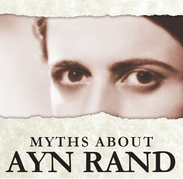David Kelley’s Three Greatest Hits – Article by Edward Hudgins

David Kelley is retiring from The Atlas Society, which he founded in 1990 under the name of The Institute for Objectivist Studies. But I can’t imagine David with an “emeritus” moniker retiring from the world of ideas that he has helped to shape.
I was at the founding event in New York City that February nearly three decades ago. I spoke at Summer Seminars and attended one-day New York events in the 1990s, and I had the privilege of working for many years with David at the Atlas Society. Knowing The Atlas Society and David as I do, I offer my own picks for his three greatest intellectual hits.
First, in The Contested Legacy of Ayn Rand, he explained that Objectivism is an open philosophy—indeed, that to be “open” is what separates a philosophy from a dogma. Objectivism originated with Ayn Rand, is defined by certain principles, but has its own logic and implications that might even be at odds with some of Rand’s own thoughts. The philosophy is open to revision and new discoveries. One implication of David’s understanding—and of the virtue of independence—is that individuals must come to the truth through their own minds and their own paths. David, therefore, rejected the practice of too many Objectivists of labeling those who disagreed with some or much of the philosophy as “evil.” In many cases they are simply mistaken. He rejected the practice of refusing even to speak with individuals who called themselves “libertarians,” arguing that the only way to change someone’s mind is to address that mind. David saved Objectivism from becoming a marginalized cult.
Second, David advanced Objectivism by showing that “benevolence” is one of the cardinal virtues of the philosophy. He argued that the logic of the ideas that constitute the philosophy leads to the conclusion that it should take its place among other virtues like rationality, productivity, pride, integrity, honesty, independence, and justice. His book Unrugged Individualism: The Selfish Basis of Benevolence is an intellectual gem that has yet to be fully mined for the value it can offer to those who want to create a world as it can be and should be, a world in which humans can flourish.
Third, David identified three world views in conflict in today’s culture. The Enlightenment ushered in modernity, which values reason, with its products of science and technology; individuals, with their rights to pursue their own happiness; liberty, with governments limited to its protection; and dynamic free markets, with their opportunities for all to prosper. Opposing modernity, David sees premodernists, who emphasize the values of faith, tradition, social stability, and hierarchy. He also sees postmodernists, whom he describes as “vociferous foes of reason, attempting to undermine and expunge the very concepts of truth, objectivity, logic, and fact.” They see these and all values as “social constructs”—all except their own left-wing dogmas and their desire to use force to bend all to their soul-destroying whims. Those wanting to understand the values battle in our culture in order to win it for civilization must have David’s essay “The Party of Modernity” in their hands and its ideas in their minds.
David Kelley created The Atlas Society to further develop and promote Objectivism, the philosophy he loves. As he steps back from the day-to-day responsibilities of his position, I know he’ll devote more time to pursuing the ideas that give him so much joy and the rest of us so much enlightenment.
Dr. Edward Hudgins is the research director for The Heartland Institute. He can be contacted here.
In conjunction with other department directors, Hudgins sets the organization’s research agenda and priorities; works with in-house and outside scholars to produce policy studies, policy briefs, and books; contributes his own research; and works with Heartland staff to promote Heartland’s work.
Before joining Heartland, Hudgins was the director of advocacy and a senior scholar at The Atlas Society, which promotes the philosophy of reason, freedom, and individualism developed by Ayn Rand in works like Atlas Shrugged. His latest Atlas Society book was The Republican Party’s Civil War: Will Freedom Win?
While at The Atlas Society, Hudgins developed a “Human Achievement” project to promote the synergy between the values and optimism of entrepreneurial achievers working on exponential technologies and the values of friends of freedom.
Prior to this, Hudgins was the director of regulatory studies and editor of Regulation magazine at the Cato Institute. There, he produced two books on Postal Service privatization, a book titled Freedom to Trade: Refuting the New Protectionism, and a book titled Space: The Free-Market Frontier.
